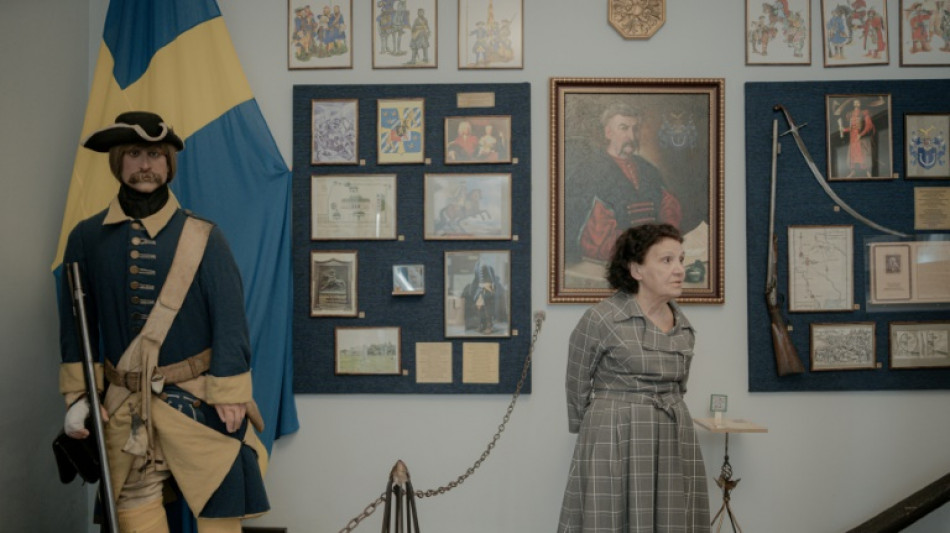
-
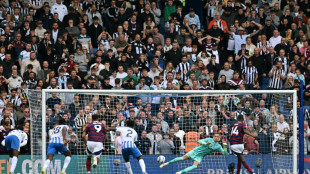 Howe hails Newcastle's 'ruthless' Isak after VAR drama in Brighton draw
Howe hails Newcastle's 'ruthless' Isak after VAR drama in Brighton draw
-
Pant woes continue as Lucknow lose to Punjab in IPL

-
 'Thunderbolts' strikes big, topping N.America box office
'Thunderbolts' strikes big, topping N.America box office
-
Kompany player-led shake-up returns Bayern to Bundesliga summit

-
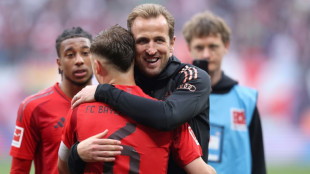 Leverkusen draw hands Kane's Bayern Bundesliga title
Leverkusen draw hands Kane's Bayern Bundesliga title
-
Chelsea sink champions Liverpool, Man Utd crash at Brentford

-
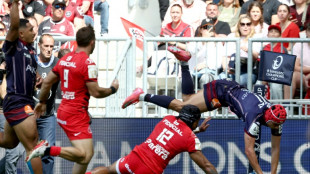 Bielle-Biarrey lifts Bordeaux past Toulouse and into Champions Cup final
Bielle-Biarrey lifts Bordeaux past Toulouse and into Champions Cup final
-
Chelsea beat champions Liverpool to boost top five push

-
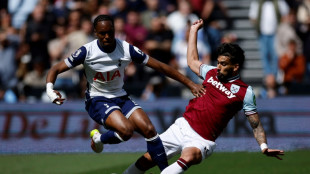 Hammers' Potter reveals Paqueta's tears of frustration at Spurs draw
Hammers' Potter reveals Paqueta's tears of frustration at Spurs draw
-
Lyon's Champions League hopes hit by loss to Lens
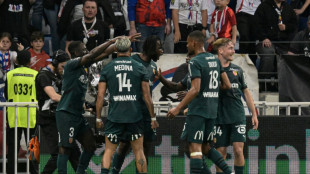
-
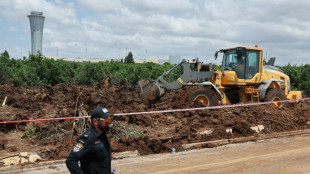 Israel vows retaliation against Iran, Yemen's Huthis over airport attack
Israel vows retaliation against Iran, Yemen's Huthis over airport attack
-
Man Utd 'need to change' after Brentford loss: Amorim

-
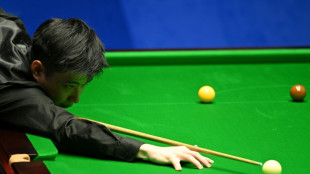 China's Zhao dominates Williams 7-1 in first session of World Snooker final
China's Zhao dominates Williams 7-1 in first session of World Snooker final
-
Zelensky says does 'not believe' Russian truce promises
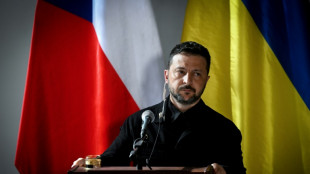
-
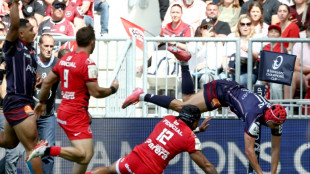 Bielle-Biarrey double lifts Bordeaux past champions Toulouse and into Champions Cup final
Bielle-Biarrey double lifts Bordeaux past champions Toulouse and into Champions Cup final
-
Trump says 'I don't know' if must uphold US Constitution as president
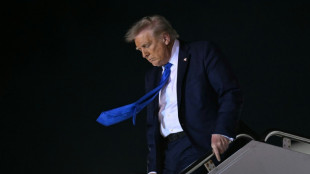
-
 Brazil police foil Lady Gaga gig bomb plot
Brazil police foil Lady Gaga gig bomb plot
-
Godolphin in full bloom as Desert Flower wins 1000 Guineas
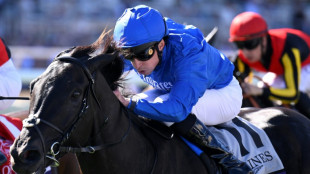
-
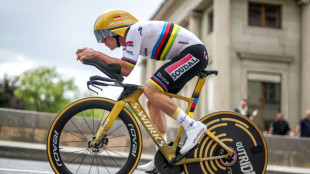 Almeida wins Tour de Romandie as Evenepoel claims closing time-trial
Almeida wins Tour de Romandie as Evenepoel claims closing time-trial
-
Bolsonaro leaves hospital three weeks after abdominal surgery
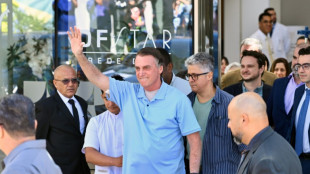
-
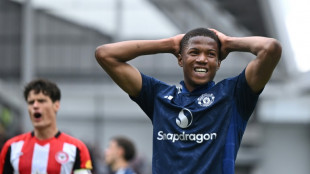 Man Utd crash at Brentford, Isak rescues Newcastle
Man Utd crash at Brentford, Isak rescues Newcastle
-
Romanians vote in tense presidential rerun as far right eyes win

-
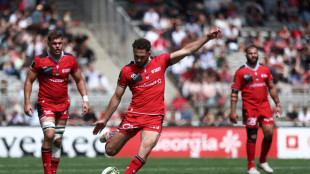 Lyon see off Racing to set up Challenge Cup final against Bath
Lyon see off Racing to set up Challenge Cup final against Bath
-
Kolkata survive Parag's six-hitting blitz to clinch IPL thriller
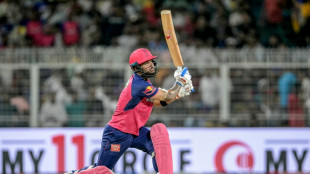
-
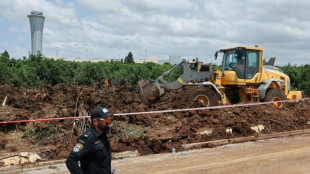 Israel vows retaliation against Yemen's Huthis over airport attack
Israel vows retaliation against Yemen's Huthis over airport attack
-
Mbappe maintains Real Madrid Liga dream in Celta thriller

-
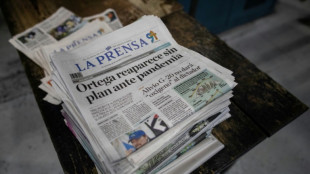 UNESCO says Nicaragua quitting over press prize award
UNESCO says Nicaragua quitting over press prize award
-
Church donation box goes digital in Greece
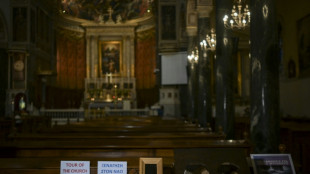
-
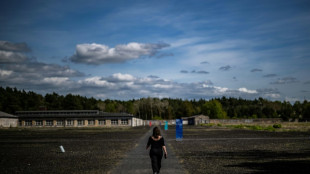 Germans mark liberation of Ravensbrueck Nazi camp
Germans mark liberation of Ravensbrueck Nazi camp
-
Missile hits Israel airport area in Huthi-claimed attack
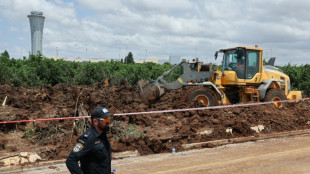
-
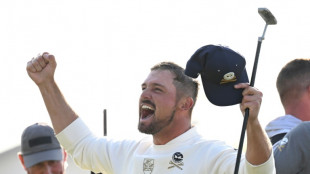 DeChambeau eyes PGA Championship battle after South Korea LIV win
DeChambeau eyes PGA Championship battle after South Korea LIV win
-
Chinese president to visit Russia on May 7-10: Kremlin
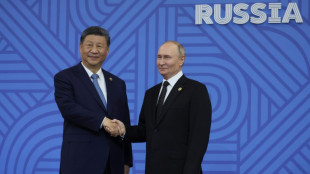
-
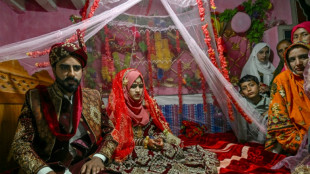 'We don't care': weddings go on in Pakistan's Kashmir border
'We don't care': weddings go on in Pakistan's Kashmir border
-
Missile hits Israel airport area in attack claimed by Yemen's Huthis
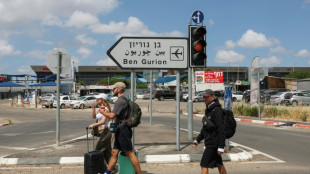
-
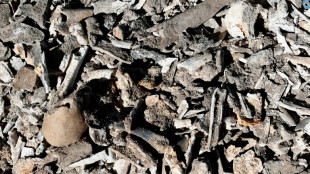 Mexican mayor arrested in probe of alleged drug cartel ranch: govt source
Mexican mayor arrested in probe of alleged drug cartel ranch: govt source
-
Seven Iranians among eight arrested in UK counterterrorism probes
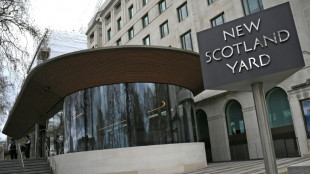
-
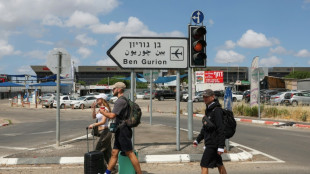 Israel says area of airport hit after Yemen missile launch
Israel says area of airport hit after Yemen missile launch
-
Romanians return to polls as far right hopes to win presidential rerun
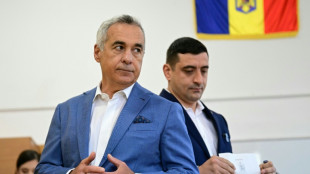
-
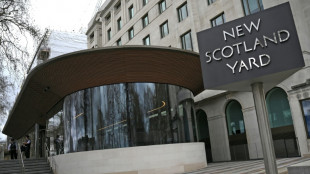 4 Iranians among 5 arrested in UK for 'terrorism offences': police
4 Iranians among 5 arrested in UK for 'terrorism offences': police
-
'Two million' throng Lady Gaga concert at Rio's Copacabana
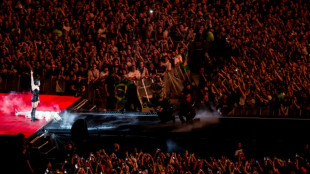
-
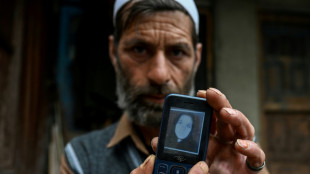 India-Pakistan gunfire triggers terror of past conflict
India-Pakistan gunfire triggers terror of past conflict
-
UK hard right sets sights high after local election triumphs
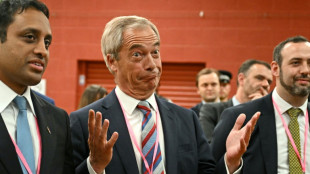
-
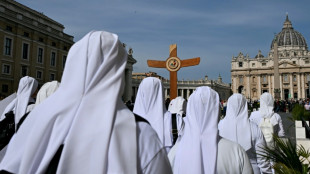 Sexual abuse of nuns: one of the Catholic Church's last taboos
Sexual abuse of nuns: one of the Catholic Church's last taboos
-
West German foothold of far-right AfD shows challenge for Merz
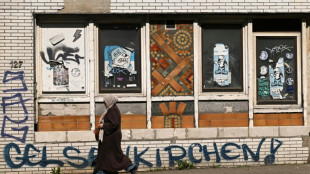
-
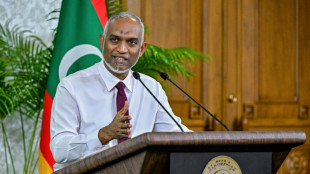 Maldives president holds record 15-hour press conference
Maldives president holds record 15-hour press conference
-
'Accept me': Near Ukraine front, a haven for outcasts
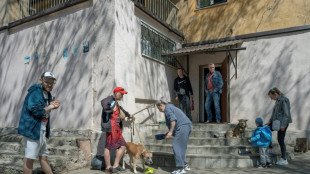
-
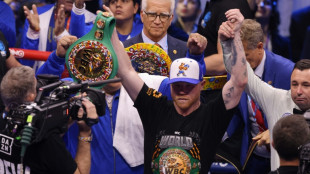 Canelo Alvarez unifies super middleweight titles on Saudi Arabia debut
Canelo Alvarez unifies super middleweight titles on Saudi Arabia debut
-
Canelo Alvarez unifes super middleweight titles on Saudi Arabia debut
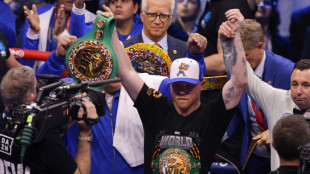
-
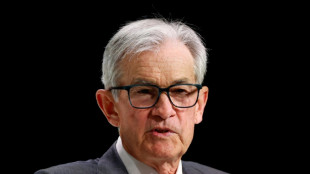 US Fed expected to pause cuts again and wait for clarity on tariffs
US Fed expected to pause cuts again and wait for clarity on tariffs
-
Ex-Liverpool star Firmino 'proud' after more Champions League history
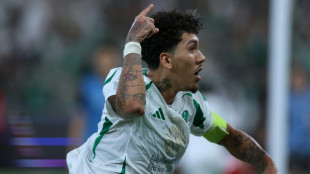

Ukrainian museum moves to 'decolonise' history
The quiet and echoing rooms of the museum in Poltava, dedicated to an 18th-century battle in central Ukraine, belie a struggle in the war-torn country on how far to go in recasting Russia's role in history.
The Russian invasion has seen Ukraine step up sweeping "de-colonisation" measures, including the removal of symbols of tsarist and Soviet domination.
Kyiv's efforts to remove Soviet monuments and symbols began in 2014, when Russian forces annexed the Crimean peninsula and backed armed separatists in the east of the country.
But new laws passed in the second year of Russia's full-scale invasion seek to go even further, forcing the Poltava museum to respond to claims it has not gone far enough to revise Kremlin-supported narratives.
The sleepy city, around 350 kilometres (220 miles) east of Kyiv, was the scene of a decisive June 1709 battle when the forces of Russian Tsar Peter the Great defeated the troops of Swedish King Charles XII in what is widely seen as the moment when Russia became a major European power.
"Over more than 300 years, a complex myth has been created around the Battle of Poltava," said Lyudmyla Shendryk, a guide who has worked at the museum for over 40 years.
In the years following the battle, the Russian empire captured more Swedish territory and Russia became the dominant power in eastern Europe.
- Hero or traitor -
Peter the Great spent vast sums to present the victory in Poltava as the result of a "genius" ruler selected by God, Shendryk said.
The Swedish king was allied with Ukrainian Cossack leader Ivan Mazepa, who had previously backed the tsar before going over to Sweden, and was presented by Russia as the ultimate traitor.
In 1828, in a famous poem, "Poltava," the Russian poet Alexander Pushkin depicted Mazepa as a pitiful and evil old man, reinforcing this negative legend in Russian culture.
Other Ukrainians were also fighting on the side of Peter the Great, Shendryk said, but under Soviet leader Josef Stalin the USSR embraced an "imperial narrative" in which the "brother peoples" of Russians, Ukrainians and Belarusians fought a "partisan war" against "Swedish interventionists" and Mazepa's "exploiters".
The museum presented this interpretation of history until Ukraine's independence from the USSR in 1991, after which it was transformed, she said.
Today, Mazepa, who was educated in Europe, spoke numerous languages and was a fervent patron of the arts, is presented in the museum as a national hero who wanted to preserve the independence of Ukrainian Cossacks against Russian expansionism.
In 2020, the museum created a display disproving "10 Russian myths" about Poltava, including the "treachery" of Mazepa.
"Mazepa wasn't a traitor to his own people," said Volodymyr, 25, a history teacher in Poltava.
But a decolonisation campaign can succeed only when it steps out of the archives and libraries and reaches young people via social media, he added.
- 'Act of genocide' -
Nor has the campaign gone far enough for some Ukrainians.
In 2024, one of the country's most widely read newspapers, Ukrainska Pravda, published an article accusing the museum in Poltava of continuing to glorify "Russian arms".
It accused the museum of not giving enough details of a massacre carried out by Russia in 1708 in the capital of Mazepa's realm, Baturyn, that led to thousands of deaths, calling it "an act of genocide".
A statue of Peter the Great in front of the museum was wrapped up in black plastic in June 2022 and then taken down in February.
The director of the museum, Nataliya Bilan, does not hide her dismay at such attacks, while acknowledging that decolonisation requires for her staff "a profound reinterpretation" of the facts.
Thousands of Ukrainian soldiers pass through Poltava trains to the front, and many stop by to visit the museum, Bilan said. In the vestibule, under a flag signed by fighters, a message thanks the museum for maintaining the "Сossack spirit".
Museum guide Shendryk said she sees her mission as analysing the causes of the "catastrophe" in Poltava, so it does not happen again.
"We need to be brave, not remain silent or close our eyes to the complex or disagreeable pages in our history," she said.
"And one of these disagreeable pages is, above all, our lack of unity."
Y.Nakamura--AMWN